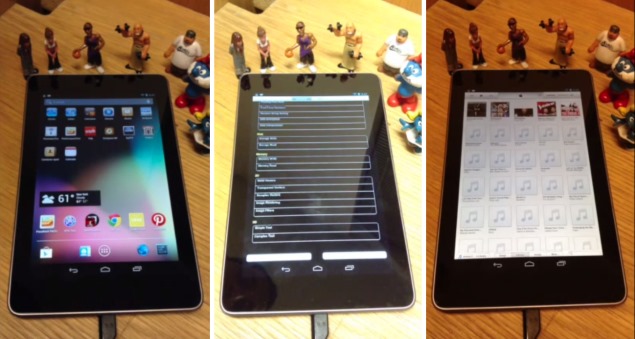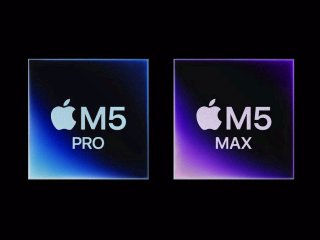- Home
- Mobiles
- Mobiles News
- Research Project Enables iOS Apps to Run on Android
Research Project Enables iOS Apps to Run on Android
By NDTV Correspondent | Updated: 14 May 2014 17:48 IST

Click Here to Add Gadgets360 As A Trusted Source

Advertisement
A team of six students at Columbia University has created a software framework for Android that allows simple iOS apps to run as if they were native. The technique tricks Android into believing the apps were designed for it, while creating an environment that the apps can run in stably.
The students, Jeremy Andrus, Alexander Van't Hof, Naser AlDuaij, Christoffer Dall, Nicolas Viennot and Jason Nieh, managed to create Project Cider at the individual processing thread level rather than using a virtualisation layer, which has already been done across various platforms.
In an abstract of the full PDF report posted to Columbia University's Software Systems Laboratory website (and reported by TheNextWeb), the team describes two new binary compatibility mechanisms, compile-time code adaptation, and diplomatic functions. The abstract reads, "Compile-time code adaptation enables existing unmodified foreign source code to be reused in the domestic kernel, reducing implementation effort required to support multiple binary interfaces for executing domestic and foreign applications. Diplomatic functions leverage per-thread personas, and allow foreign applications to use domestic libraries to access proprietary software and hardware interfaces."
The team used a Google Nexus 7 tablet to demonstrate the technique, referring to Android as the "domestic OS" and iOS the "foreign OS". By intervening between iOS apps and Android's binary app interfaces, the team was able to successfully run various iOS apps side by side with Android apps. Translation occurs for the iOS apps only, without the rest of the system being affected.
Project Cider has its limitations related to app and hardware functionality. It cannot currently translate instructions and interfaces for access to a device's Bluetooth, GPS, cameras and even cellular radios. iOS apps that can still run with these functions turned off will do so. The team intends to continue development work on this project.
The students, Jeremy Andrus, Alexander Van't Hof, Naser AlDuaij, Christoffer Dall, Nicolas Viennot and Jason Nieh, managed to create Project Cider at the individual processing thread level rather than using a virtualisation layer, which has already been done across various platforms.
In an abstract of the full PDF report posted to Columbia University's Software Systems Laboratory website (and reported by TheNextWeb), the team describes two new binary compatibility mechanisms, compile-time code adaptation, and diplomatic functions. The abstract reads, "Compile-time code adaptation enables existing unmodified foreign source code to be reused in the domestic kernel, reducing implementation effort required to support multiple binary interfaces for executing domestic and foreign applications. Diplomatic functions leverage per-thread personas, and allow foreign applications to use domestic libraries to access proprietary software and hardware interfaces."
The team used a Google Nexus 7 tablet to demonstrate the technique, referring to Android as the "domestic OS" and iOS the "foreign OS". By intervening between iOS apps and Android's binary app interfaces, the team was able to successfully run various iOS apps side by side with Android apps. Translation occurs for the iOS apps only, without the rest of the system being affected.
Project Cider has its limitations related to app and hardware functionality. It cannot currently translate instructions and interfaces for access to a device's Bluetooth, GPS, cameras and even cellular radios. iOS apps that can still run with these functions turned off will do so. The team intends to continue development work on this project.
Comments
For details of the latest launches and news from Samsung, Xiaomi, Realme, OnePlus, Oppo and other companies at the Mobile World Congress in Barcelona, visit our MWC 2026 hub.
Related Stories
Popular on Gadgets
- Samsung Galaxy Unpacked 2026
- iPhone 17 Pro Max
- ChatGPT
- iOS 26
- Laptop Under 50000
- Smartwatch Under 10000
- Apple Vision Pro
- Oneplus 12
- OnePlus Nord CE 3 Lite 5G
- iPhone 13
- Xiaomi 14 Pro
- Oppo Find N3
- Tecno Spark Go (2023)
- Realme V30
- Best Phones Under 25000
- Samsung Galaxy S24 Series
- Cryptocurrency
- iQoo 12
- Samsung Galaxy S24 Ultra
- Giottus
- Samsung Galaxy Z Flip 5
- Apple 'Scary Fast'
- Housefull 5
- GoPro Hero 12 Black Review
- Invincible Season 2
- JioGlass
- HD Ready TV
- Latest Mobile Phones
- Compare Phones
Latest Gadgets
- Apple iPhone 17e
- AI+ Pulse 2
- Motorola Razr Fold
- Honor Magic V6
- Leica Leitzphone
- Samsung Galaxy S26+
- Samsung Galaxy S26 Ultra
- Samsung Galaxy S26
- MacBook Pro 16-Inch (M5 Max, 2026)
- MacBook Pro 16-Inch (M5 Pro, 2026)
- Apple iPad Air 13-Inch (2026) Wi-Fi + Cellular
- Apple iPad Air 13-Inch (2026) Wi-Fi
- Huawei Watch GT Runner 2
- Amazfit Active 3 Premium
- Xiaomi QLED TV X Pro 75
- Haier H5E Series
- Asus ROG Ally
- Nintendo Switch Lite
- Haier 1.6 Ton 5 Star Inverter Split AC (HSU19G-MZAID5BN-INV)
- Haier 1.6 Ton 5 Star Inverter Split AC (HSU19G-MZAIM5BN-INV)
© Copyright Red Pixels Ventures Limited 2026. All rights reserved.
















